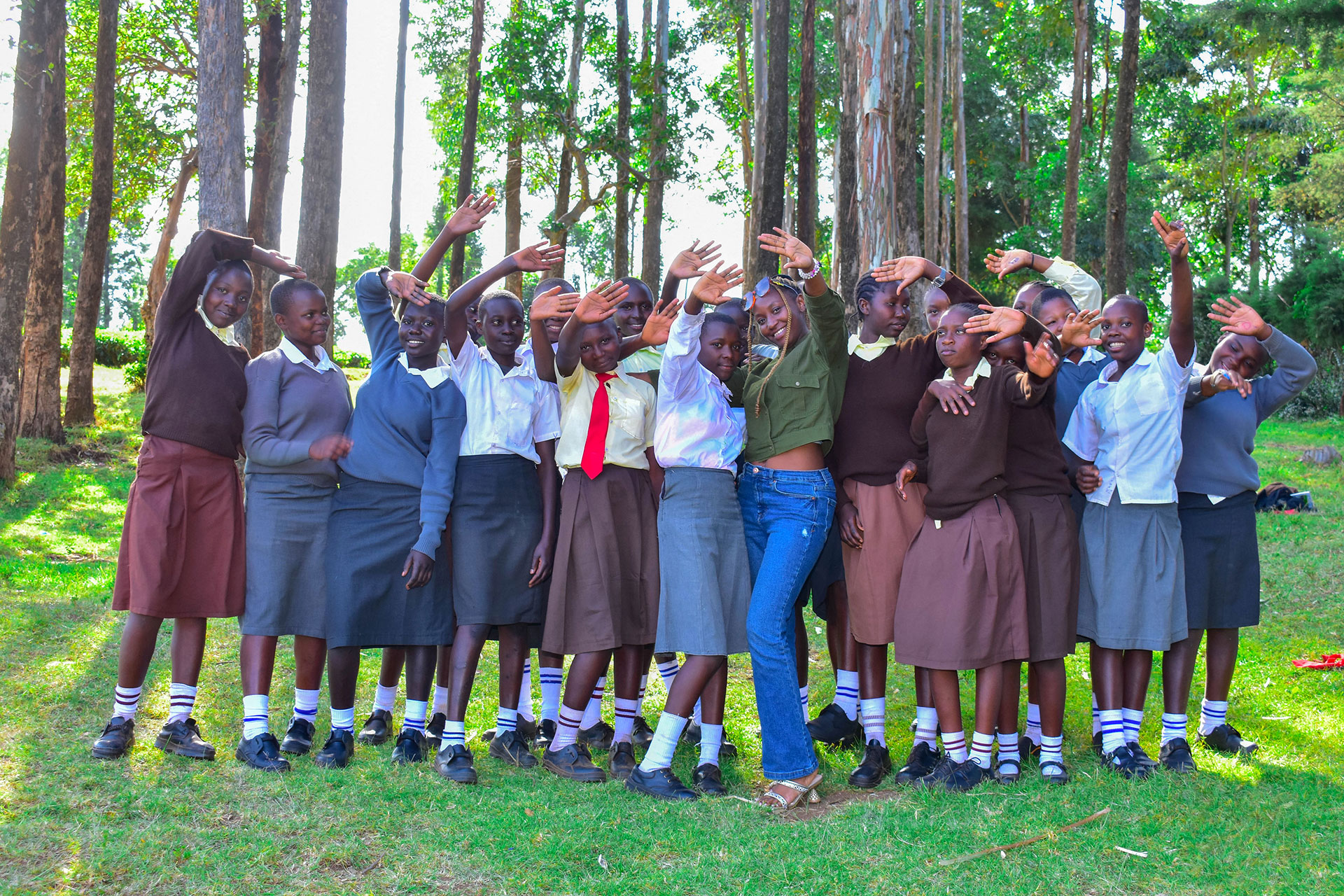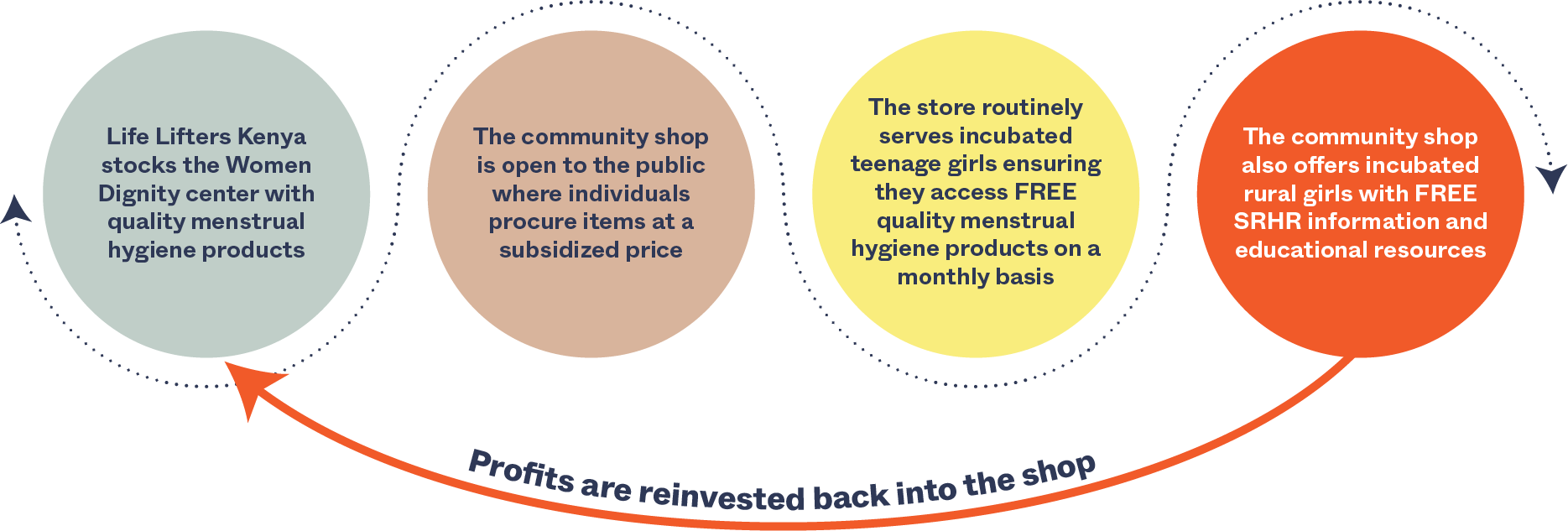Period poverty remains a pressing challenge in Kenya, disproportionately affecting teenage girls in rural areas. According to research by the Ministry of Health, 54% of Kenyan girls face challenges accessing menstrual health management (MHM) products, and 65% still lack sustainable access to safe menstrual products. This crisis derails their education, exposes them to early marriages, and perpetuates the cycle of poverty.

Life Lifters Kenya, a non-governmental organization and grantee of the Ipas Collaborative Fund, is addressing this issue head-on. Through its innovative programs in Nandi and Bungoma counties in western Kenya, the organization is breaking barriers to menstrual hygiene management while equipping girls with critical reproductive health knowledge.
Catalyzing change through education
Over the past year, Life Lifters Kenya has implemented Project EmpowerHer, a sexual and reproductive health and rights (SRHR) training initiative designed to equip teenage girls in rural communities with comprehensive reproductive health information. This program bridges the knowledge gap while fostering resilience against school dropout, teenage pregnancies, and early marriages. Since its inception, Project EmpowerHer has impacted over 150 teenage girls in Nandi with tools and resources to protect their reproductive health and education.
Project EmpowerHer has impacted over 150 teenage girls in Nandi

Innovation for sustainable impact through women’s dignity centers
Understanding that affordability and accessibility of menstrual hygiene products such as sanitary towels, panties, and soap are the two biggest hurdles for rural girls in menstrual health management, Life Lifters Kenya introduced Women’s Dignity Centers that increase the penetration of MHM resources to rural girls.
The Women’s Dignity centers are community stores aimed at providing essential reproductive health items, information and educational resources to women and girls in rural and grassroots communities, promoting their dignity and well-being.
Located where girls reside, these centers provide girls with free, timely and quality menstrual hygiene resources such as sanitary towels, panties and soap ending their period poverty. The centers run a combined business model that taps into the commercial aspects of the community to support the needs of the girls.
We are grateful that the community centers really help our girls attending school without interruption because they have access to these essential items.”
PARENT
I have received mentorship and support from the dignity center in my community. My friends and I visit the center every month to collect our dignity kits, and it’s such a relief knowing I don’t have to worry if my parents can’t afford them. The center provides them to us for free, and I am so grateful.”
ADOLESCENT

Impact in 2024
Life Lifters Kenya’s Women’s Dignity Centers, currently in the pilot phase, are already impacting lives. The key milestones include:
3
Establishing three Women’s Dignity Centers in Nandi and Bungoma Counties
100
Supporting over 100 menstruating teenage girls with consistent access to menstrual health management resources
600
Distributing over 600 packets of sanitary towels and panties to girls in need
384,016
Investing KES 384,016 in these centers to ensure their continued success
Building a future of dignity and equality
Life Lifters Kenya envisions a world where every teenage girl has an equal opportunity to attend school without being held back by the lack of sanitary pads or the burden of paying for them. By leveraging existing community structures, the organization aims to create an ecosystem that not only meets the reproductive health needs of marginalized girls but also empowers communities to take ownership of sustainable solutions.
We believe strongly that no teenage girl should have to pay for sanitary towels. We are working with the communities and our partners like Ipas to make this a reality for our girls.”
Cynthia Muhonja, Life Lifters Founder

